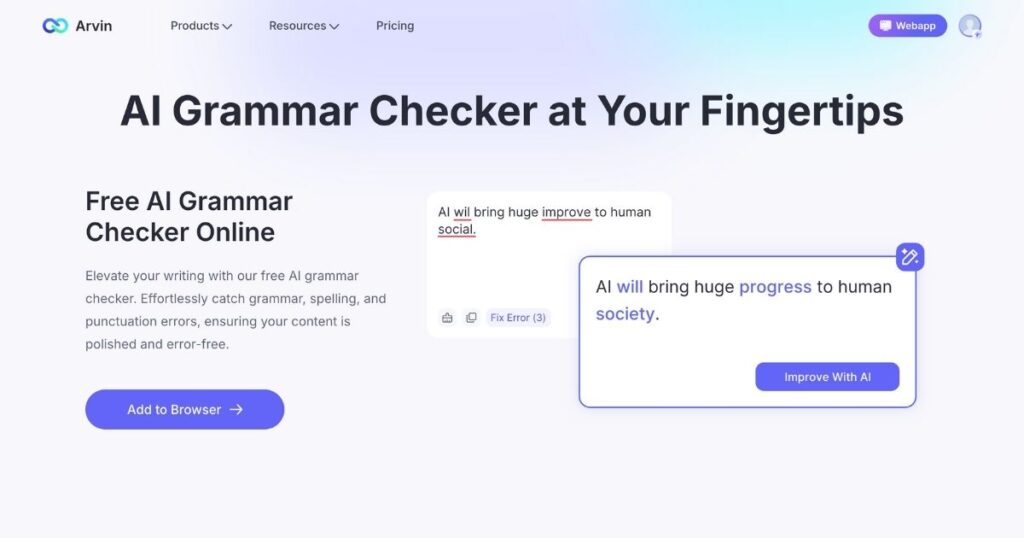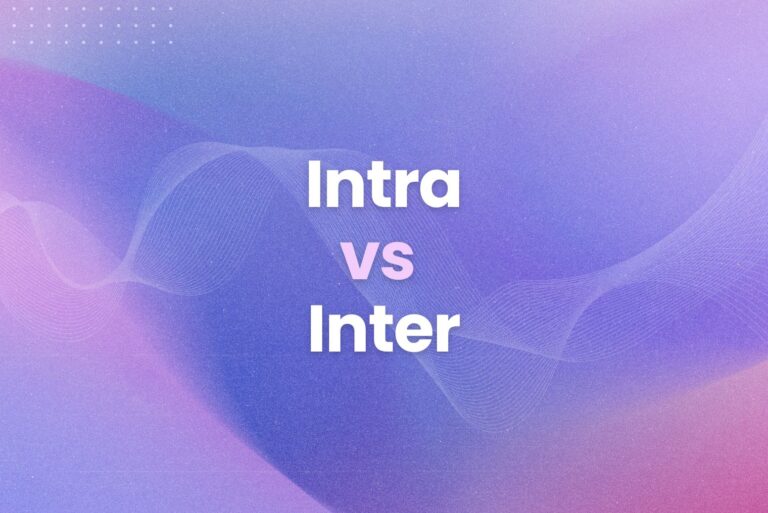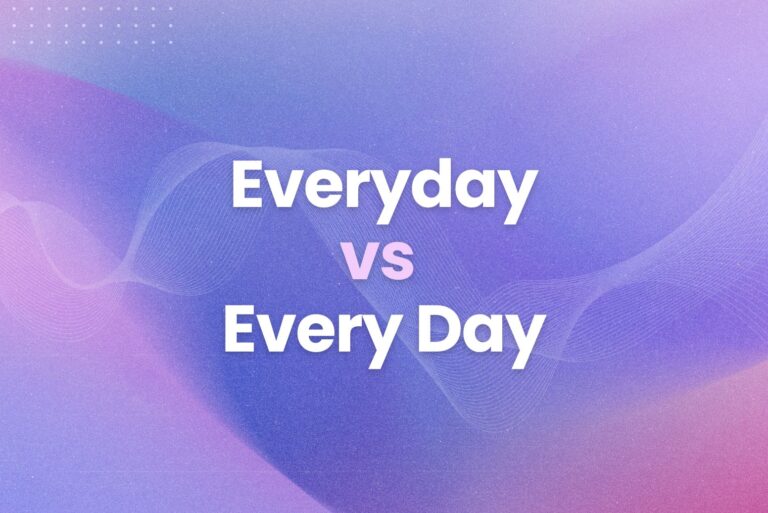A Part vs Apart: Quiz Yourself and Master This Grammar Rule
Choosing between a part vs apart can be a real head-scratcher, even for seasoned writers. It’s one of those pesky grammar rules that can trip you up at the most unexpected times. But fear not.
This guide is here to clear up the confusion once and for all. Here’s what we’ll cover:
- Definitions and examples of “a part” vs. “apart”
- Next, a breakdown of their key differences
- Then, a quick quiz to test your understanding (with answers, of course!)
- Finally, easy tips to remember the difference like a pro
Read on to find out more.
Let’s Define “A Part” and “Apart”
We often hear these two words thrown around, but what do they really mean? Let’s break it down:
A Part
“A part” refers to a piece or segment of something larger. It signifies being included in something or belonging to a whole.
Examples:
- “This chapter is a part of my favorite book.”
- “He played a part in the school play.”
- “I want to be a part of the team.”
Apart
“Apart” usually means separated by distance or time. It can also mean besides or except for.
Examples:
- “They live miles apart.“
- “The twins were born five minutes apart.“
- “Apart from the weather, it was a perfect vacation.”
See? It’s not as complicated as it seems. However, just to be sure, let’s bold the difference: “a part” implies inclusion, while “apart” suggests separation.
On that note, if you ever get stuck, Arvin can help. This nifty AI browser extension has a handy grammar checker that can spot errors and suggest the correct word to use. In other words, it’s like having a personal editor right in your browser.

Spotting the Difference: A Part vs Apart
Now that we know what each word means, let’s, therefore, get to know about their differences. It’s all about context.
Inclusion vs. Separation
This is the core distinction. “A part” signals that something belongs to or is included in a larger whole. Think of a puzzle piece fitting into a jigsaw puzzle. Conversely, “apart” indicates separation or distance, like two puzzle pieces that don’t fit together.
Grammatical Roles
Furthermore, these two words also play different roles in a sentence. “A part” acts as a noun phrase, whereas “apart” can be an adverb, adjective, or even a preposition when paired with “from.” Don’t worry too much about the grammar jargon, just remember that they function differently in a sentence.
Usage Examples
To make it crystal clear, let’s see them in action:
- A part: “She wanted to be a part of the solution, not the problem.”
- Apart: “The argument tore them apart.“
Notice how “a part” indicates inclusion in the solution, while “apart” shows separation caused by the argument.
Quick Tip!
For example, here’s a handy trick: If you can replace the word with “piece” or “portion,” use “a part.” Similarly, if you can swap it with “aside from” or “except for,” use “apart.”
With this in mind, these key differences between “a part” vs “apart” will have you well on your way to mastering these tricky words. However, just to be safe, let’s put your knowledge to the test with a quick quiz.
Quiz Time: Are You a “Part” or “Apart” Pro?
This quick quiz will test your understanding of a part” vs apart. Don’t worry, we’ll go over the answers together afterward.
Instructions: Choose the correct word (“a part” or “apart”) to complete each sentence.
- He felt like he was _______ of something special.
- The siblings were inseparable, never _______.
- _______ from the minor scratches, the car was in perfect condition.
- She played _______ in the company’s success.
- The two houses stood far _______.
Answers
- a part
- apart
- Apart
- a part
- apart
Never Confuse “A Part” and “Apart” Again: Easy Tricks
You crushed the quiz (hopefully), but how can you guarantee you’ll always use these words correctly? We’ve got your back with some simple tricks:
- Firstly, “Piece of the Puzzle” Trick: Remember that “a part” implies belonging or inclusion, like a piece fitting into a larger puzzle. If you can replace the word with “piece” or “portion” in the sentence, then “a part” is your winner.
- Then, “Distance and Time” Trick: Secondly, “Apart” often relates to distance or time. Think of things being physically separated or events happening at different times. If you can swap the word with “separate” or “aside from,” go with “apart.”
- “From” Factor: “Apart” often pairs up with “from” to form the phrase “apart from,” meaning “besides” or “except for.” So, if “from” fits naturally after the word, you know it’s “apart.”
- Arvin to the Rescue. Lastly, don’t forget about your trusty AI sidekick, Arvin! With its grammar-checking capabilities, Arvin can help you catch those tricky “a part” vs. “apart” errors before they even happen. It’s like having a grammar expert proofread your work in real-time. Talk about a confidence booster.
In conclusion, with these simple tips and Arvin by your side, you’ll be using “a part” and “apart” like a pro in no time.
Nailed It. You’re Now a “Part” vs. “Apart” Expert
Congrats on making it to the end! You’re now well-equipped to tackle “a part” and “apart” with confidence. Remember those key differences and handy tricks, and you’ll be a grammar superstar in no time.
So, here’s a quick recap of what we covered on a part vs apart:
- “A part” implies inclusion or belonging.
- “Apart” indicates separation or distance.
- Context is key to choosing the right word.
Want to write with even more confidence? Arvin can help you catch those pesky grammar errors and write like a pro. With Arvin by your side, you’ll never have to second-guess yourself again. Check it out and see the difference.
FAQs: “A Part” vs. “Apart”
In short, “a part” means a piece or portion of something, while “apart” means separated by distance or time. For example, you might say, “This is a part of my plan,” or “They live miles apart.”
The correct phrase is “a part of a team.” This is because you’re indicating inclusion or belonging to the team.
While “apart” and “aside” can sometimes be used interchangeably, there’s a subtle difference. “Apart” usually refers to physical or temporal separation, whereas “aside” often implies setting something aside or to the side. For instance, you might say, “They moved apart after the argument,” or “He set aside some money for emergencies.”
“Apart” has a few different uses:
Firstly, to indicate physical separation: “The two buildings stood far apart.”
Secondly, shows separation in time: “The events happened years apart.”
Lastly, mean “except for” or “besides”: “Apart from the rain, it was a beautiful day.”
In conclusion, understanding the nuances of a part vs apart can elevate your writing and help you communicate more effectively.





